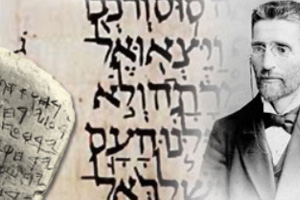Masters Degree Study Departments
Master’s degree in Hebrew Language

The study of linguistics and philology in general and the Hebrew language in particular takes us on a fascinating journey which tries to understand and trace the mechanism of the language’s development and the history of the Hebrew language and its place in our lives. The study of a language is like opening a window to understanding the culture and society of the language users. Master’s degree students in the Department delve deep into the research of Hebrew, in the fields of pragmatics, discourse research, semantics, syntax, morphology, phonology, and more. The Department is unique in its focus on both the study of Hebrew discourse and speech, and the study of other Semitic and Jewish languages, and on the Hebrew language’s place in the Semitic language family. The Hebrew language, its formation, and the changes it undergoes, are studied from a multidisciplinary perspective in courses on the connections between language as a basic communication tool and varied disciplines such as communication, sociology, cognitive science, and law.
Students can choose between a track with a thesis (3 years) or without one (2 years)
Graduates with a Bachelor’s degree and a grade point average of at least 76, or at least 80, depending on the study program
Department requirements specified on the department’s website
Track A – Regular track, personal track, accelerated track
Track B – Regular track, track with specialization in Linguistic Editing
Direct doctoral track (For more details please contact the department)
Post-graduation employment opportunities: Academic research and assisting in research; working in the field of developing translation software, language courseware development, natural language processing; writing curricula on the subjects of language, language and society, language and communication; copy editing, literary translation, and simultaneous interpretation. Teaching in schools, teaching immigrants Hebrew as a foreign language, teaching Hebrew in Jewish communities around the world, training military teachers in teaching Hebrew as a second language.



